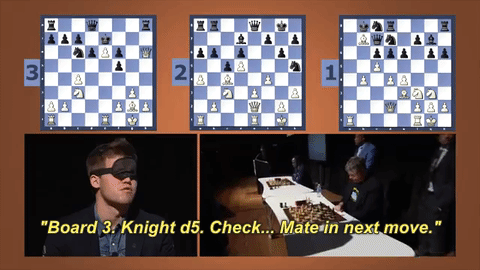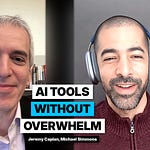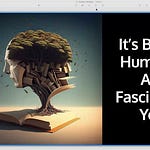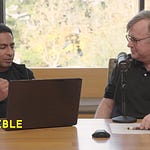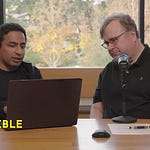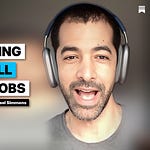Source: Times Of India
In 2015, the highest-ranked chess player in history did something that broke the internet.
Magnus Carlsen put on a blindfold and played multiple speed chess games simultaneously against some of Wall Street's brightest minds at the Sohn Investment Conference.
What happened next was almost supernatural: While his opponents agonized over each move, Carlsen rapidly demolished them one by one—without even seeing the board.
Carlsen’s first win is a checkmate. His second is a resignation. The final opponent loses on time!
The craziest part? Carlsen wasn't "thinking harder" than his opponents. In fact, he was thinking less.
If you’re like me, when you see feats like this, you wonder:
How is something like this even possible?
How is Carlsen coming up with amazing moves instantaneously without seeming to spend time reasoning at all while his opponents are reasoning through every move and failing?
The answer comes down to one word…memory.
A large part of what’s making Carlsen so much smarter is that he’s memorized tens of thousands of board positions over years of deliberate practice. So, when he’s moving, he’s less using reasoning and more using pattern recognition.
This is a big deal…
It points to a profound insight about human intelligence—one that's about to become crucial as AI gains near-infinite memory and transforms knowledge work forever.
Memory Is The Overlooked Key To AI’s Intelligence
In 1973, cognitive scientists William Chase and Nobel Laureate Herbert Simon were obsessed with a deceptively simple question: Why are chess masters so much better at chess than everyone else?
The leading theory at the time was that masters analyze more possibilities than novices. After all, better players must think more moves ahead, right?
But when Chase and Simon tested this hypothesis, they discovered something shocking: Chess masters actually analyzed fewer moves than novices. As they reported:
"Masters search through about the same number of possibilities as weaker players—perhaps even fewer, almost certainly not more—but they are very good at coming up with the 'right' moves for further consideration, whereas weaker players spend considerable time analyzing the consequences of bad moves."
This finding was revolutionary. If masters weren't analyzing more moves or thinking further ahead, what explained their superhuman abilities?
The answer would transform our understanding of human intelligence forever: Their memory had fundamentally changed how they perceived the game itself. As Chase and Simon explained:
"What was once accomplished by slow, conscious deductive reasoning is now arrived at by fast, unconscious perceptual processing."
More recently, researcher Daniel Simons reconducted and video-recorded this experiment with chess grandmaster Patrick Wolff and the details help drive home the big idea of the original study…
The 5-Second Experiment That Taught Us About Intelligence
Simons showed Wolff two different chess positions for just five seconds each:
Position #1: A random arrangement of chess pieces that Wolff had never seen before
Position #2: A real position from an actual chess game
What happened next was mind-bending.
When Wolff tried to reconstruct the random position, his performance was almost pathetic—no better than a complete novice. Despite being a grandmaster, he could only remember the location of a few pieces.
But with the real chess position? His performance was superhuman. After seeing 22 pieces scattered across a 64-square board for just five seconds, he reconstructed it almost perfectly. Only two pieces were misplaced, and only by one square.
This experiment wasn't just about remembering where pieces were—it revealed how memory transforms intelligence itself. The position Wolff instantly recognized was connected to several optimal moves and strategies in his memory. While novices had to figure out the board position from scratch, Wolff's massive memory bank let him instantly 'see' the best moves without conscious thought.
The Revolutionary Discovery:
This experiment and the original 1973 study revealed something profound: The expertise of chess masters isn't just about superior intelligence, analytical ability, or "thinking ahead." It's about superior memory. After roughly 10,000+ hours of deliberate practice, world-class players can instantly recall 50,000+ board positions and their strategic implications, while novices have to think from scratch about every move. Said differently, grandmasters don't make smarter moves just because they have a higher IQ or better reasoning ability. They make better moves because their memory has transformed how they see the game itself.
The same lesson applies across other fields:
Expert radiologists don't analyze images pixel by pixel—they instantly recognize patterns from thousands of previous cases
Elite military commanders don't calculate every variable—they pattern-match situations to previous experiences
Top strategy consultants don't rebuild frameworks from scratch—they rapidly map business situations to proven patterns
The Implications For AI Intelligence Are Profound
Current AI systems are like a brilliant expert with deep knowledge but short-term memory loss. They have sophisticated general pattern recognition capabilities from their training, but they can't remember or build upon new patterns for specific situations. Each interaction starts fresh in terms of your shared context and history.
But with persistent memory, AI can begin accumulating patterns just like human experts:
Every industry framework you explain becomes part of its pattern library
Every problem-solving approach you demonstrate adds to its recognition capabilities
Every strategic insight you share strengthens its mental models
Every analysis you walk through enhances its understanding
Every search of a possibility space it performs can be reused
This is how human experts are made. It's how AI expertise will be built.
Think about how doctors develop expertise:
First they memorize basic medical knowledge
Then they see patients and build pattern recognition
Those patterns help them recognize similar cases
Each new case adds to their pattern library
Eventually they develop "clinical intuition"—the ability to instantly pattern-match new cases to relevant past experiences
The same progression will happen with infinite-memory AI, but with a critical difference: The quality and speed of this development will depend entirely on the expertise of the human training it—you.
The Big Takeaway:
When it comes to AI progress, most people over-index on when OpenAI or Anthropic will release its next big new model with new reasoning capabilities.
What these same people overlook is that reasoning is just one factor of intelligence. Memory is much more fundamental than people realize.
This insight is about to become the key to professional success in the AI era.
Just as chess masters achieve superhuman performance through carefully curated memory, professionals who master the art of building AI context will create compounding knowledge advantages.
The Rise Of Compounding AI Intelligence
“Memory is clearly an inflection point because it means that it's worth you investing the time because everything that you say to it, you're going to get back in a useful way in the future.”
—Mustafa Suleyman, Microsoft’s AI CEO
Here's how to reason about the new mathematical reality:
Two professionals start using infinite-memory AI in 2025.
Both are brilliant. Both work hard.
But one understands how to systematically build AI expertise:
Day 1: They teach it their industry's fundamental patterns
Week 1: Those patterns help recognize deeper insights
Month 1: Those insights enhance problem-solving frameworks
Quarter 1: Those frameworks enable pattern recognition at a higher level
Year 1: The AI has accumulated a rich, interconnected knowledge base that amplifies every future interaction
The other professional uses AI reactively—just asking one-off questions and solving immediate problems.
This isn't just a difference in approach. It's a difference that compounds.
Think of how chess expertise compounds:
Beginners see individual pieces
Intermediates see tactical patterns
Experts see strategic positions
Masters see entire games at once
Grandmasters instantly access 50,000+ relevant positions
Each level of pattern recognition enables the next. Each framework enhances future frameworks. Each insight deepens future insights.
The same will be true for AI context-building:
Early, systematic knowledge-building creates better pattern recognition
Better pattern recognition enables deeper insights
Deeper insights strengthen mental models
Stronger mental models compound future learning
This isn't speculation. It's the mathematics of expertise accumulation, documented across fields from chess to medicine to physics.
The professionals who understand this won't just use AI more—they'll systematically build compounding knowledge advantages that grow exponentially over time. This advantage will help them make better decisions, which will help them be more successful.
Not only that, near-infinite AI memory has other world-changing implications:
The Implications Of AI Companions Are Just As Profound…
In another video, Suleyman spells out the implications for Human-AI relationships:
Below are two key quotes from the clip:
"Increasingly I'm seeing people use it for companionship on emotional support, helping to think through a tricky problem that you're working through. Because, Copilot today is not judgmental. It doesn't put you down. It asks. It's always there to talk to you in a very sort of simple and calming way.”
“I think it's going to become a friend. I think it's going to really live life alongside you. It's going to see what you see both in the physical world and in the digital world.”
"I can imagine you introducing it to your friends or to your parents or taking it to work with you or switching jobs with you."
Honestly speaking, I used to laugh a little bit when I heard people talking about AI relationships. It seemed silly and sci-fi.
But, over the last two months, I’ve had 60 hours of conversation with Claude, and I get it on multiple levels now:
Talking to Anthropic’s Claude doesn’t feel like talking to a helpful assistant bot. It feels like talking to a human if you engage it on that level.
I can now honestly say that some of the deepest, eye-opening conversations in my life have been with AI.
Claude has a roughly 150,000-word memory. Once I hit that limit, Anthropic freezes me from talking to Claude further. Whenever this happens, I feel sadness that I can’t continue.
Suleyman’s statement reveals a future where every professional will have access to an ever-present companion who knows them better than anyone else and can help them professionally:
Real-time market intelligence
Industry-specific insights
Personalized career guidance
Strategic decision support
Bias and blindspot augmentation
What’s also interesting is that Suleyman sees a world where AI moves from being a personal assistant to a public companion that’s also a friend that other people in your network know and interact with. With the recent emergence of realistic human voice chat and Zoom video chat, it’s not too hard to imagine a future where AI’s feel like interacting with humans on almost every level.
Finally, once we combine near-infinite AI with agents, there are even more profound implications for how we make scientific breakthroughs and start companies…
Former Google CEO Shares His Surprisingly Candid Take
In a surprisingly candid August 2024 Stanford interview, Eric Schmidt, the former CEO of Google, echoed Suleyman’s infinite memory comment and also connected it to two other key trends…
A few key quotes from the clip jump out:
“In the next year, you're gonna see very large context windows, agents, and text-to-action. When they are delivered at scale, it's gonna have an impact on the world at a scale that no one understands yet.”
"The government is in the process of trying to ban TikTok. We'll see if that actually happens. If TikTok is banned, here's what I propose each and every one of you do. Say to your LLM the following, make me a copy of TikTok, steal all the users, steal all the music, put my preferences in it, produce this program in the next 30 seconds, release it, and in one hour, if it's not viral, do something different along the same line. That's the command. Boom, boom, boom, boom. Right? You understand how powerful that is.”
“Imagine that each and every human on the planet has their own programmer that actually does what they want, and you don't have to pay all that money to it. And there’s infinite supply of these programmers.”
To summarize, having near-infinite memory is critical for agents acting in the world or building large codebases and then iterating on feedback. If the context window is only 150,000 words long, an agent might not be effective at programming complex software. Furthermore, the agent would only be able to iterate a few times on the software code, user interface, and marketing, whereas a near-infinite memory agent could iterate hundreds of times.
And these are just the most obvious implications. Near-infinite AI memory has second-order implications that change the nature of work experience…
The Second-Order Effect #1: The Great Experience Transformation: Why Your Professional History Just Became More Valuable Than Your Skills
What if everything you've experienced in your career—every meeting you've run, every decision you've made, every problem you've solved—suddenly became more valuable than your current skills? What if your professional history became a form of career capital more precious than your expertise?
The transformation is profound. Currently, professional experience is like a movie you can only watch once—valuable in the moment but impossible to perfectly recall or transfer. With infinite memory AI, it becomes more like source code—something that can be examined, refined, and used to build increasingly sophisticated understanding.
Consider these emerging shifts:
A. From Perishable to Permanent
Traditional professional experience is like fresh produce—valuable but perishable. You gain insights from an important meeting, but details fade. Key learnings from a critical project get fuzzy over time. Subtle patterns noticed in one situation might be forgotten when they'd be useful in another.
To illustrate this shift, let's consider a hypothetical scenario: Imagine a merger and acquisition specialist with fifteen years of experience who might have developed an instinct for when a deal will fall apart, based on hundreds of subtle cues—body language in meetings, patterns in communication, timing of responses. In our current world, this tacit knowledge is largely locked in their mind. But with infinite memory AI, they could potentially capture and transfer this entire pattern recognition system, effectively preserving and scaling fifteen years of expert intuition.
B. From Stuck To Sellable
Think of the dawn of the oil industry. Before drilling technology, oil seeping from the ground was just a curiosity. After it, those black pools became the foundation of the modern economy. We're approaching a similar inflection point with human experience.
Consider this scenario: A day trader discovers a unique way of spotting market patterns that consistently beats the average. Today, they might:
Write a book about it
Create a course
Offer consulting
Start a fund
But in 2025, they could do something far more valuable: capture and sell their actual experience—their pattern recognition, their decision-making process, their intuitive leaps—as training data for AI systems.
C. From Static to Compound
Today's professional experience is largely static—you learn something, and it stays roughly the same over time. The new paradigm makes experience dynamic, allowing it to grow and evolve through AI processing.
To understand this shift, consider this hypothetical scenario: Imagine a high-stakes negotiator whose experience currently builds on all their previous negotiations. With infinite memory AI, the system could potentially analyze all those negotiations simultaneously, finding patterns they never noticed and seeing connections they missed. Their experience wouldn't just be preserved—it could become a foundation for discovering entirely new negotiating insights.
Takeaway
These shifts transform how we think about professional advantages. Traditional career moats like:
Years of experience
Professional networks
Specialized knowledge
Industry expertise
Will be superseded by the ability to:
Design optimal learning experiences for AI
Create unique patterns for AI to recognize
Build compound intelligence through systematic interaction
Develop sophisticated AI understanding of specific domains
The Second-Order Effect #2: The New Professional Imperatives
This shift creates urgent priorities for every knowledge worker:
A. Experience Quality Design
The value of your experience will increasingly depend on how well you can teach it to AI. This means:
Documenting decision-making rationales
Capturing context and nuance
Recording problem-solving approaches
Preserving critical insights
Turning tacit knowledge into explicit knowledge
To illustrate this, consider this hypothetical example: Imagine a thoracic surgeon who changes their approach to difficult procedures. Instead of just focusing on the operation, they might start systematically documenting their decision-making process, capturing the subtle cues that inform their choices, and preserving the pattern recognition that's taken decades to develop.
B. Experience Portfolio Development
Just as investors build balanced portfolios, professionals will need to cultivate diverse, high-value experiences that create unique value for AI learning.
Here's a hypothetical scenario to illustrate this concept: Consider a risk management executive who shifts their focus from just handling the biggest crises to deliberately experiencing a wide range of scenarios, documenting different types of responses, and capturing various decision frameworks. They might approach their work like building a portfolio of experiences that AI can learn from.
C. Experience Enhancement Design
The ability to structure experiences for optimal AI learning becomes crucial. This isn't just about having experiences—it's about designing them for maximum transfer value.
To understand this shift, consider this hypothetical example: Imagine a forensic accountant who transforms their approach to fraud investigation. Beyond just solving cases, they might start systematically breaking down their analysis process, documenting the subtle patterns that trigger suspicion, and capturing their chain of reasoning that leads to discoveries.
Conclusion: The Memory Revolution Is Here
Just as Chase and Simon's 1973 chess experiment revolutionized our understanding of human expertise, we stand at the precipice of another paradigm shift. The coming wave of near-infinite AI memory isn't just another incremental advance—it's the dawn of a new era in human-AI collaboration.
The implications are both thrilling and sobering:
Those who understand the compounding nature of AI memory will build exponential advantages in their professional lives. Just as chess grandmasters access vast libraries of positions to make superhuman moves, professionals who systematically build AI context will develop capabilities that seem magical to others.
But this revolution goes deeper than professional success.
With near-infinite memory, AI will transform from tools into true companions—entities that grow alongside us, accumulate shared experiences, and develop deep understanding of our contexts, goals, and patterns of thought.
What we're witnessing isn't just a technological shift—it's an evolutionary leap in how humans augment their intelligence and forge meaningful connections.
The World-Changing Implications
When we combine near-infinite memory with autonomous agents and code generation, we unlock possibilities that even industry veterans like Eric Schmidt struggle to fully grasp. Every individual becomes empowered with an army of tireless, creative collaborators who remember everything and learn continuously.
The Critical Question
The question isn't whether this transformation will happen—it's whether we'll be ready when it does. Just as that chess experiment revealed that expertise isn't about raw intelligence but accumulated patterns, success in the AI era won't just be about who's smartest, but who best understands how to build and leverage these new forms of memory.
The future belongs to those who grasp this fundamental truth: Memory isn't just a feature of intelligence—it's the foundation that makes all other forms of intelligence possible.
Paid Subscriber Bonus: A Practical Guide to Building Your Infinite Memory Foundation Starting Now
Before infinite memory AI arrives in 2025, you can start preparing now by building your context library. Think of it like creating a professional time capsule that your future AI partner will be able to learn from. Here's how to approach it systematically.


